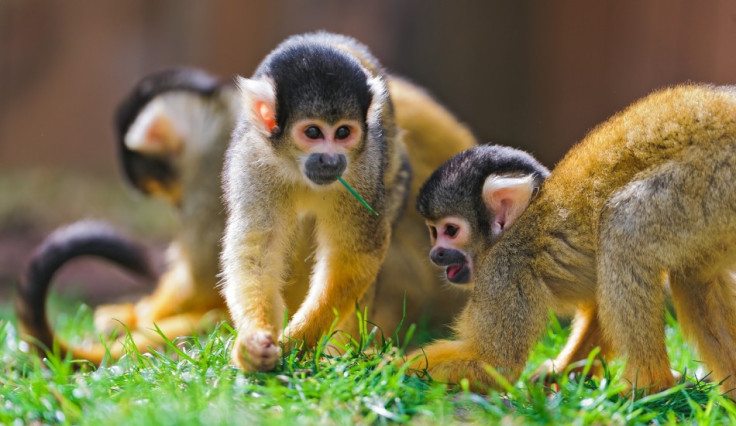Monkeys Sharing Juice Gives Clues to Autism Disorders

Monkeys sharing juice with their fellow primates might provide an insight into disorders such as autism, where social processing is disrupted.
Published in the journal Nature Neuroscience, researchers at Duke University in Durham found that when monkeys are kind to one another, an area of their brains records these acts of generosity.
When the monkeys were performing reward-related tasks, the scientists measured neuronal activity in three areas of their brains known to be involved in social decision making.
The monkeys were given the option of drinking juice or giving the juice away to a neighbour; mostly, they kept the juice for themselves.
However, when given the option of giving the juice away or neither monkey getting any, they opted to give the treat to their fellow primate.
In the first test, researchers found only two out of the three brain areas fired neurons.
In the second, however - where the monkeys gave juice to friends and observed it being received - the third area of the brain fired neurons.
This area is known as the anterior cingulate gyrus (ACG), which is a region specialising in social decision-making.
Human evolution favoured altruism
Matthew Rushworth, a neuroscientist at the University of Oxford, said: "This is the first time that we have had quite such a complete picture of the neuronal activity underlying a key aspect of social cognition. It is definitely a major achievement."
The authors think that the neurons in the ACG respond to and remember acts of kindness.
The ACG is located in the same area of the brain that is associated with feelings of empathy in humans; suggesting that the balance of signalling in the three brain areas may be linked to normal social behaviour in humans.
They also think disruption to these areas may lead to various psychiatric conditions, such as autism.
Matthew Apps and Narender Ramnani, from Royal Holloway, University of London, said: "The great complexity of human social interactions and the huge variation in what we find rewarding compared with other primates prompts questions about whether the anterior cingulate gyrus operates similarly in the human brain."
It is thought that human brains may have evolved to favour altruistic behaviour through the development of these areas of the brain.
"This may have evolved originally to promote being nice to family, since they share genes, and later friends, for reciprocal benefits," study co-author Michael Platt concluded.
© Copyright IBTimes 2025. All rights reserved.






















